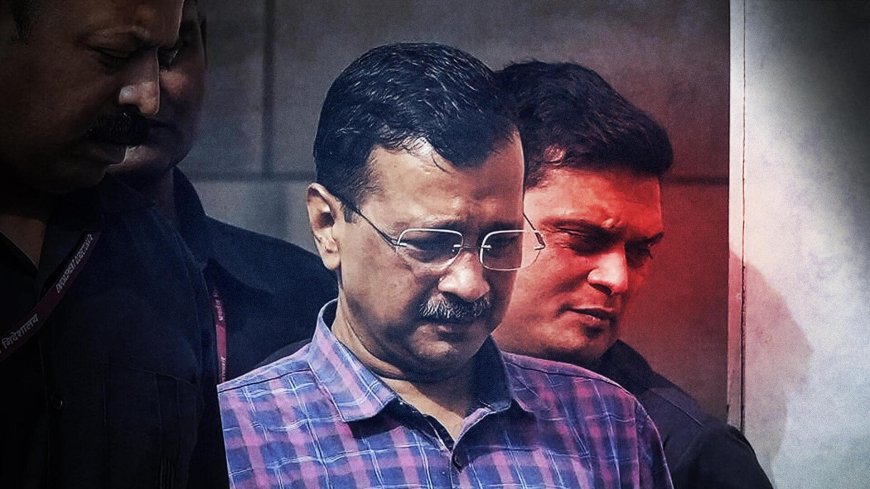‘Unbreakable’ Sparks Political Storm: AAP’s Image Under Scrutiny Amid Documentary Backlash
The newly released documentary ‘Unbreakable’ on the Aam Aadmi Party (AAP) ignites controversy over its portrayal of party politics, raising questions about propaganda, timing, and censorship. Read a detailed analysis of reactions, implications, and political undertones.

New Delhi, June 3, 2025 — A week after its release, the political documentary ‘Unbreakable’—chronicling the journey of the Aam Aadmi Party (AAP) from a grassroots movement to a major political force—has sparked intense debate across the country. While the film positions itself as a story of resilience, transparency, and idealism, critics claim it serves as a strategic piece of political propaganda, released suspiciously close to a turbulent phase in AAP's political fortunes.
The 90-minute documentary, directed by independent filmmaker Ravindra Narang, is streaming on Hotstar, with the trailer alone garnering over 3 million views within its first 48 hours on YouTube.
What is ‘Unbreakable’ About?
The documentary attempts to narrate the political rise of Arvind Kejriwal, tracing AAP’s origins in the 2011 India Against Corruption movement and mapping its evolution through Delhi’s state politics, national ambitions, and recent challenges. Through archival footage, exclusive interviews, and behind-the-scenes shots, ‘Unbreakable’ builds an image of a party that “refuses to bow down to systemic pressures.”
The film highlights:
-
AAP’s anti-corruption crusade and policy decisions
-
Its fight with the Centre over administrative powers in Delhi
-
Controversial arrests and ED raids on senior leaders
-
Arvind Kejriwal’s personal sacrifices and health battles
But critics argue the documentary conveniently ignores key controversies, including the Delhi Liquor Policy scam, as outlined by The Hindu, and internal dissent that has reportedly rocked the party over the last two years.
Opposition’s Reaction: “Pure Political Theatre”
Leaders across the political spectrum have responded sharply. BJP spokesperson Sambit Patra called ‘Unbreakable’ a “paid PR exercise designed to sway public sentiment ahead of impending legal challenges.”
“This is not cinema, it’s political theatre funded with questionable money,” he said in a press briefing covered by India Today.
Congress leader Jairam Ramesh echoed the sentiment, adding, “Real transparency would involve airing all truths—not just a curated narrative that omits financial scandals and leadership rifts.”
Supporters See It as an Inspirational Story
AAP supporters have taken to social media platforms such as X (formerly Twitter) and Facebook, hailing the documentary as a bold attempt to “tell the truth amid media bias.” The hashtag #UnbreakableAAP has been trending nationwide, with party members urging viewers to “watch before judging.”
In an op-ed for The Quint, political analyst Neha Mehra writes:
“The documentary, though clearly biased, captures an emotional truth—the dream of clean politics and how difficult it is to sustain in India’s system.”
Censorship Demands and Legal Challenges
Several right-wing activists have filed complaints with the Central Board of Film Certification (CBFC), alleging the film violates neutrality norms and could influence public opinion during an ongoing legal process. A PIL has also been filed in the Delhi High Court, demanding a temporary ban on the documentary until an investigation into its funding sources is completed.
Legal expert Ashok Sinha, in an interview with Bar & Bench, pointed out:
“If the documentary was financed by the party or its affiliates and not disclosed as such, it could violate election funding transparency laws.”
Media and Cultural Implications
The controversy surrounding ‘Unbreakable’ has reignited a longstanding debate about the blurring of lines between political content and entertainment media in India. Just as films like ‘The Accidental Prime Minister’ or ‘PM Narendra Modi’ raised eyebrows for their timing and portrayal, ‘Unbreakable’ raises important questions about how political stories are told—and by whom.
A recent report by MediaNama explored the lack of clear policy regulation for digital documentaries with overt political themes, warning that “algorithmic amplification can be as influential as traditional campaign advertisements.”
Public Sentiment: Polarised but Curious
Surveys conducted by CVoter indicate that while 38% of respondents believe the documentary presents a biased view, another 42% found it “informative and necessary.” Among first-time voters, the documentary has resonated more positively, likely due to its cinematic storytelling and emotional appeal.
Cinema halls in Delhi's University areas reported sold-out screenings over the weekend, particularly after AAP student wings launched a "Watch & Discuss" campaign in prominent campuses like JNU and Delhi University.
Final Thoughts
Whether viewed as a strategic whitewash or a heartfelt political chronicle, ‘Unbreakable’ has undeniably succeeded in capturing national attention. It reveals the power of storytelling in shaping political discourse—and the fine line between influence and propaganda.
As legal scrutiny intensifies and public opinion remains divided, the documentary’s long-term impact on AAP’s image and India’s political media ecosystem is yet to be seen.


















































